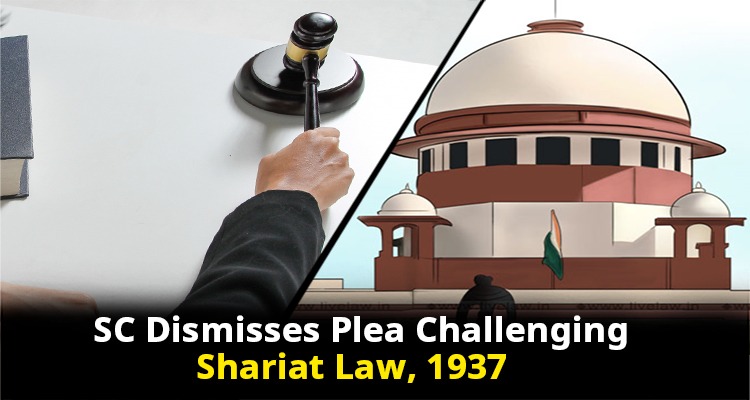
The Supreme Court has declined to entertain a plea addressing the matter of succession in accordance with the Muslim Personal Law (Shariat) Application Act, 1937, stating that such issues fall within the legislative domain, and personal laws vary for individuals belonging to different religions.
The plea contended that the Muslim Personal Law (Shariat) Application Act, 1937 mandates that Muslims in India shall be governed by Shariat law concerning matters of intestate succession, marriage, dissolution of marriage, maintenance, etc.
A bench of Justices Sanjay Kishan Kaul and Sudhanshu Dhulia remarked that the legislature may establish a common law on succession and questioned the idea of equal inheritance rights under different religious laws, such as Hindu and Muslim laws.
Advocate Mathews J Nedumpara, representing the petitioner, argued that, according to Shariat law, the petitioner, a Muslim woman, is entitled to only 12.5 percent of the estates of her late husband. He asserted that all citizens, regardless of their religion, should have equal inheritance rights.
The bench highlighted the diversity of personal laws for people of different religions and dismissed the plea, stating that the demand for a common law of succession is a matter for the legislative domain.
In its order, the bench stated, “We cannot accede to the prayer made in the writ petition, which amounts to giving equal rights in succession, irrespective of the religion. If this has to happen, it is the legislative domain. The writ petition is, accordingly dismissed.”
The woman’s plea sought the enforcement of her fundamental right to just and equitable inheritance of the estates of her late husband, arguing that this right was denied by the Muslim Personal Law (Shariat) Application Act, 1937.
The plea sought a declaration from the apex court that widows, daughters, and mothers of a Muslim man who died intestate are entitled to an equitable share of estates, properties, and assets, similar to other communities’ personal laws.




